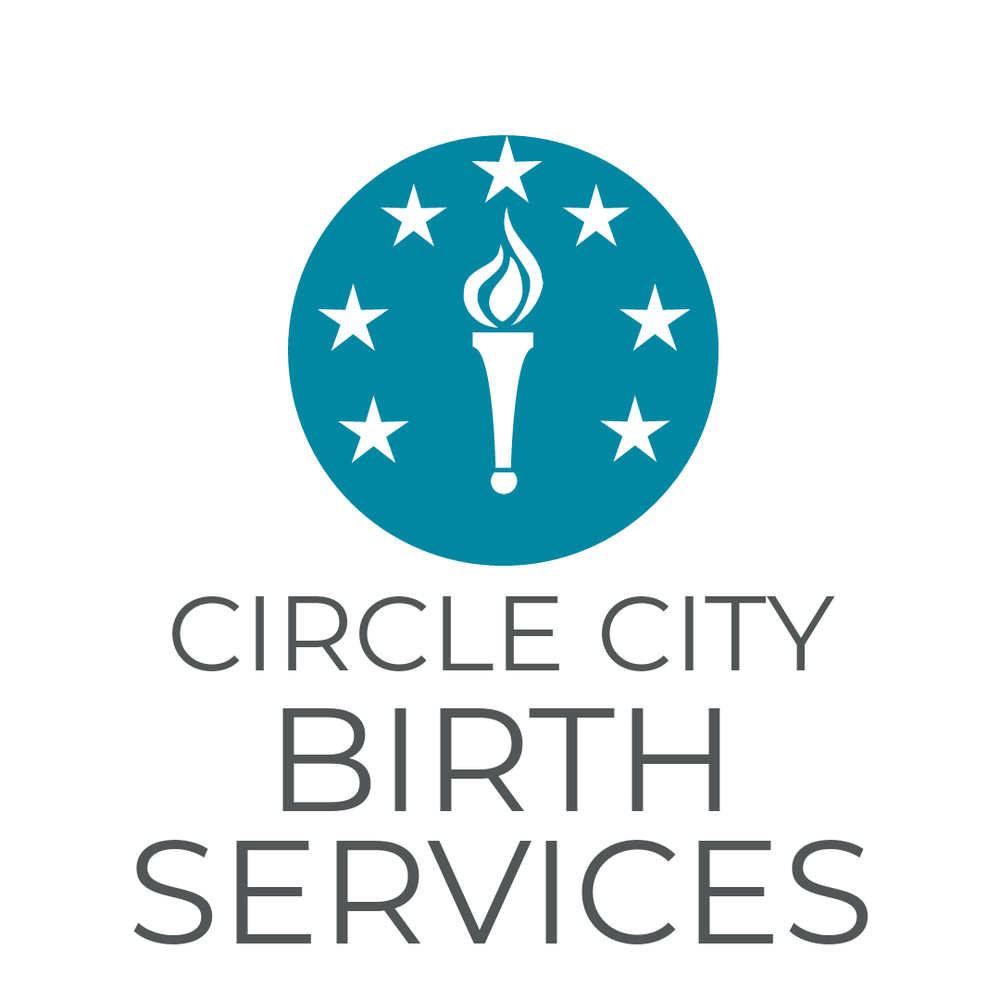Twelve years as a Doula and 180+ births in, I’ve narrowed down 6 tips that families can follow that will give them the best chances at a healthy birth outcome.
Read More5 Reasons the "Golden Hour" is Important
You’ve just spent hours bringing your new baby earth side and you finally get to hold them in your arms. What’s next? The first hour after your baby is born is essential for both mom and baby. Your baby is transitioning from uterus to world and you are recovering from birth. Evidence has shown that keeping mom and baby together during this first vital hour has long term benefits for breastfeeding, bonding, and recovery. So what makes “The Golden Hour” important?
Breastfeeding
Breastfeeding within the first hour has shown to increase chances of successfully breastfeeding long term. This also helps the uterus contract to help deliver the placenta. Babies can also do something naturally called the “breast crawl”. The baby begins to ‘crawl’ around mom without guidance looking for their mother’s milk.
Skin to Skin
Placing the baby directly on your chest with direct skin to skin contact has so many benefits besides snuggling your new baby. Skin to skin helps babies regulate their temperature, their respiration, and their heart rate. This also promotes mother and baby bonding and can also help reduce the chances of developing postpartum depression.
Bonding
As stated above, skin-to-skin helps mother and baby bond. However, the bonding doesn’t stop there. There are other ways to bond with baby during this magical hour such as breastfeeding, meeting and cuddling, and learning their cues. Golden hour is not just for mom. Use this time to bond together as a new family. Dad is able to participate in the skin-to-skin action as well. Bonding during this first hour is best when done alone as a new family.
Recovery
You may decide to delay the clamping of your baby’s umbilical cord. Delaying the clamping of the umbilical cord has benefits such as increased blood volume and stem cells, and a decreased risk of anemia. This is also the time mom will birth the placenta. Health care professionals will asses both mom and baby to ensure both are healthy after their long journey together.
Csection
Having a cesarean birth does not exclude you from the “Golden Hour”. Consider asking your provider for a “gentle C-section”. Somethings you can ask for is lowering the drape, skin to skin with yourself or partner, keeping the baby in the room until mom is finished with surgery. Once in recovery you can continue enjoying your “Golden Hour” together.
If you are wanting to get the most out of your magical hour after birth, consider thinking ahead. Alert your friends and family that you would like privacy for the first hour to bond with baby alone, decide what procedures and assessments you would like done, let your healthcare professionals know your preferences for after birth.
If you are unsure about navigating your birth and Golden Hour, reach out to one of our doulas here at Indy Doula Associates to inquire about our birth and postpartum services we offer.
Meet You at Home
So often, women hear of birth being the one day that will stay with them for a lifetime. Often, healthy pregnancies and births are seen as the golden duo, the most important elements in the start of the journey of parenthood. But we disagree. It isn’t a duo at all, but rather a trio.
Healthy pregnancies are important, yes, you’re growing a real person after all and that takes a lot of work. Healthy births are just as equally important, as the studies show the benefits to a mom when she has had a safe and empowering birth. But just as equally important in this scenario is postpartum. So much planning can go into actually having the baby, that what to do when baby arrives is often not given as much attention. Postpartum, sometimes coined as the “fourth trimester”, is that final piece of the birth puzzle that often gets over looked until it’s already upon you.
You've given birth to a human being, a child now completely dependent on you for their needs to be met. For many first-time parents, this is a daunting task of being discharged from their hospital or birth center, and heading home for the first time with their newborn baby. So much has happened within the last few days or hours, and now you’re about to leave the support of your birth location, the place where you can ask questions, have a staff member or nurse show you what to do, and head home to put it all together.
You might be asking yourself: What do I do now? Will I remember everything my provider told me? Will breastfeeding go well? Will my partner, or family and friends know exactly how to help me?
These are common questions that many first-time, and experienced parents ask themselves when heading home for the first time with their new baby.
So often as postpartum doulas we have gotten calls from frantic parents who have just gotten home from the hospital, or have been home for a day or two and realized that postpartum is a little trickier transition than they anticipated. Or they’ve discovered that while the well-meaning family members and friends they have at their side might be good at cooking and running errands for them, they couldn't help them with breastfeeding or showing them soothing techniques that actually worked. For some women it might be that they had difficult births and need some extra support getting off to the right start at home.
That is what “Meet You at Home” is all about: helping parents coming home with their newborns get off to the right start from day one. With our service you are guaranteed one of our highly skilled and trained doulas at your door when you arrive home with your baby. We are there to help you adjust and get settled in, right from the start.
Meet You at Home can also provide…
· helpful tips on how you and the whole family can adjust the first week home
· help you identify your baby’s feeding cues
· help with breastfeeding or bottle feeding
· education on how to swaddle and change diapers
· assistance in organizing what your first week will look like with appointments for you and your baby, and any older children you may have
· help with navigate having visitors for the first time
And finally, we make sure you are fed, comfortable, and settled in before we go.
Over the years of working with hundreds of families postpartum, we’ve realized the huge benefits of being there from day one and heading off those frantic phone calls for before they even become necessary.
Healthy pregnancies, healthy births, and a healthy postpartum can help make more confident parents and families. In this trio, one component is just as important as the others. Plan for a smoother transition into postpartum from the beginning. Let our doulas support you making this part of your journey just as special as the start of it!
Things we shouldn't say...
An important subject brought to us from a guest blogger, Maria P! Please consider sharing on your social media accounts, especially if such things have affected you.
I’m a doctoral-level mental health professional, and I am pregnant with my third child. I’m in my mid-30s with two little girls. Although I have dealt with aches, pains, and some pregnancy complications, I’m one of those annoying women who loves pregnancy. I’m amazed by the process, and I am proud of my changing body. I am building a human inside my body, after all.
During my first pregnancy, I could barely wear maternity pants without them falling off by the time I entered my second trimester. That was not the case during pregnancy number two, and with my current pregnancy, I was essentially wearing maternity pants as soon as I peed on a stick. Perhaps it is the change in my abdominal muscles over the course of previous pregnancies, but my “baby bump” has been evident since day one, and my belly has grown exponentially fast. That did not surprise me much give this is my third time around. What has been shocking, however, is others’ reactions to my changing and expanding body. And these typically aren’t from people who know me, but from strangers and people (both men and women) I encounter for the first time.
When they hear that I’m not due for another six months, I hear their audible gasps, see their bugged-out eyes, and they stammer, “Wow! Really?! You have how much longer?” And my personal favorite, “Are you sure you don’t have twins in there?”
Don't do this...
...or this...
...or this, either. K? Thanks.
I feel fairly comfortable in my body but hearing these comments—unsolicited at that—is infuriating. It is not simply a function of this pregnant woman’s fluctuating hormones; it is offensive, unnecessary, disrespectful, and a boundary violation.
Some degree of social propriety typically keeps people from outright commenting on others’ bodies in almost every other scenario. Innocent children who comment on someone’s size who might be overweight or on someone’s visible physical disability are chastised or corrected in some way. Where is the social skills training for adults who interact with pregnant women?
People have interesting reactions to being in the presence of pregnant women. Perhaps they fondly recall their own or their partner’s pregnancies. Perhaps they feel conflict about birth or having children. I could go on about the possibilities, but regardless, pregnant women are people, not objects on whom to impart hurtful comments and unsolicited opinions.
In addition to body comments being offensive, perhaps a woman does not want to discuss her pregnancy status with another person. This is similar to congratulating a woman on a pregnancy before knowing if she truly is pregnant or sharing horrific birth stories without solicitation, but those are discussions for another day. Most people appear to be well-intentioned, but such comments inadvertently contribute to increased mental and emotional demands a pregnant woman manages.
You don’t have to avoid making polite conversation with pregnant women, but please notice where your empathy meter falls and consider how your comments might impact her. You might also need to fix your face.
So, the next time you encounter a woman you know is pregnant, you might just say, “Hi. How are you? How is everything?” and see what she says. You can wish her a wonderful pregnancy and birth experience. Leave the comments about her growing belly alone.
Mother Judgement
Ok, so you’re Super Mom!
Or at least you ‘re trying your best to fake it until you make it.
In our society, women are pressured to do it all and look perfect while we do. I don’t know about you, but I’m far from there and don’t expect to ever get “there,” wherever that might be.
And then along comes baby. Now, not only are you expected to be perfect but little one must be too. What makes us think that if we haven’t reached perfection in our however-many-years, that we can make another person, however small, have it all together?
What if we judged ourselves as mothers by another standard? What if we threw out perfection and searched for standards that respected our children and ourselves?
Let's start by taking a closer look at two important areas where we are commonly judged: food and sleep.
A few decades ago, women were made to feel bad if they chose to breastfeed their babies. Clearly science and doctors knew best and could formulate baby’s ideal food better than nature. Now, women are often pressured to breastfeed because “breast is best.”
Maybe you really want to exclusively breastfeed but work punishes you for taking the time to pump. Or maybe your partner or mother or mother-in-law pressures you to introduce a bottle so that they can feed baby too. Because we all too quickly feel guilt, we feel bad if we stop nursing a toddler when another baby comes or feel that we have to hide the truth if we choose to tandem nurse.
However, maybe nursing isn’t for you. Maybe no matter how you tried, you couldn’t produce enough milk or pumping wasn’t an option. Maybe baby just couldn’t latch correctly or spent so long in the hospital that you couldn’t get past his preference for a bottle. Perhaps you knew nursing wasn’t for you long before you ever got pregnant.
All this judgment comes before you even introduce solid foods…
And let’s not start discussing a mother’s diet when she’s pregnant or nursing…
As for sleep, everyone knows that babies have to sleep alone on their backs in their own crib (and depending on who you talk to, in their own room), right? So you stay up all night trying to get a tiny person who has never known what it means to be separate from her mother to sleep separate from you so that you can get a few minutes of desperately needed rest. Of course, you don’t nap when baby does during the day because there’s laundry to be done and dishes and… because your house still has to be perfect, right?
Not to mention, baby should be sleeping through the night at 8-10 weeks…
Here is an alternative method for evaluating yourself as a mother: Let’s judge ourselves by the standards of love and respect for the entire family.
Baby's Health
Using baby’s health isn’t a good enough measure. Sure, baby’s health is important, but baby could have been born with a genetic condition that makes weight gain challenging. Maybe baby sleeps but only when at the breast so you never sleep well or it causes issues with your partner.
Baby could be perfectly healthy, but if you stress yourself out ensuring that baby hits every milestone at the cost of your health and other relationships, you do yourself a huge injustice. And sacrificing your own health isn’t healthy for baby.
Baby's Sleep... and Mom's sleep... and Dad's sleep...
Why not judge sleep in terms of love and what’s best for your family? The pediatrician isn’t going to stay up with your baby that cries every time he’s placed alone in his own crib. If your perfect-mom friend sleeps great with her baby in her bed, it doesn’t mean you will or maybe you can’t create a safe co-sleeping arrangement or it causes stress with your partner who isn’t on board.
However, the research does show that sleep matters. More sleep for mom is a protective factor against postpartum depression. An overtired baby cries more. Tempers can flare when parents are sleep deprived. Sleep matters.
Finding the sleep arrangement that works best for you, your baby and your partner will allow for better sleep and more sleep for everyone. Maybe you cosleep part of the night. Maybe you and your partner share responsibilities so that baby sleeps in his own bed. Maybe you go to bed an hour or two earlier than baby to make up for nursing throughout the night. It doesn’t matter what works best for your friend or what your mother did. They aren’t you. You are mothering your baby. You have the relationship with your partner. The sleeping arrangement that allows the best and most sleep for you and your family will help to create a family that respects the needs of all members.
Baby Feeding
The same applies to feeding baby (and mama). Whether you breastfeed, bottle feed breast milk or formula, or a combination, you are responsible for baby’s health and your own. You have to balance the demands placed on you: work, family, baby, self-care, relationships, and more.
If you love baby, you hug baby, kiss baby, snuggle baby. You keep baby clean. You change baby’s diapers. And you FEED baby. Your love for your little one doesn’t change based on how you feed your baby.
If you respect yourself, you take care of yourself. You make sure you sleep, eat and take time for yourself. Doing so allows you to take better care of your little one.
If you love and respect your partner and the rest of your family, they and you love baby together and respect each other’s needs for sleep and self-care.
It may not look like you have it all together to outsiders, but they can’t love your baby like you can. That’s how good parents measure up.








